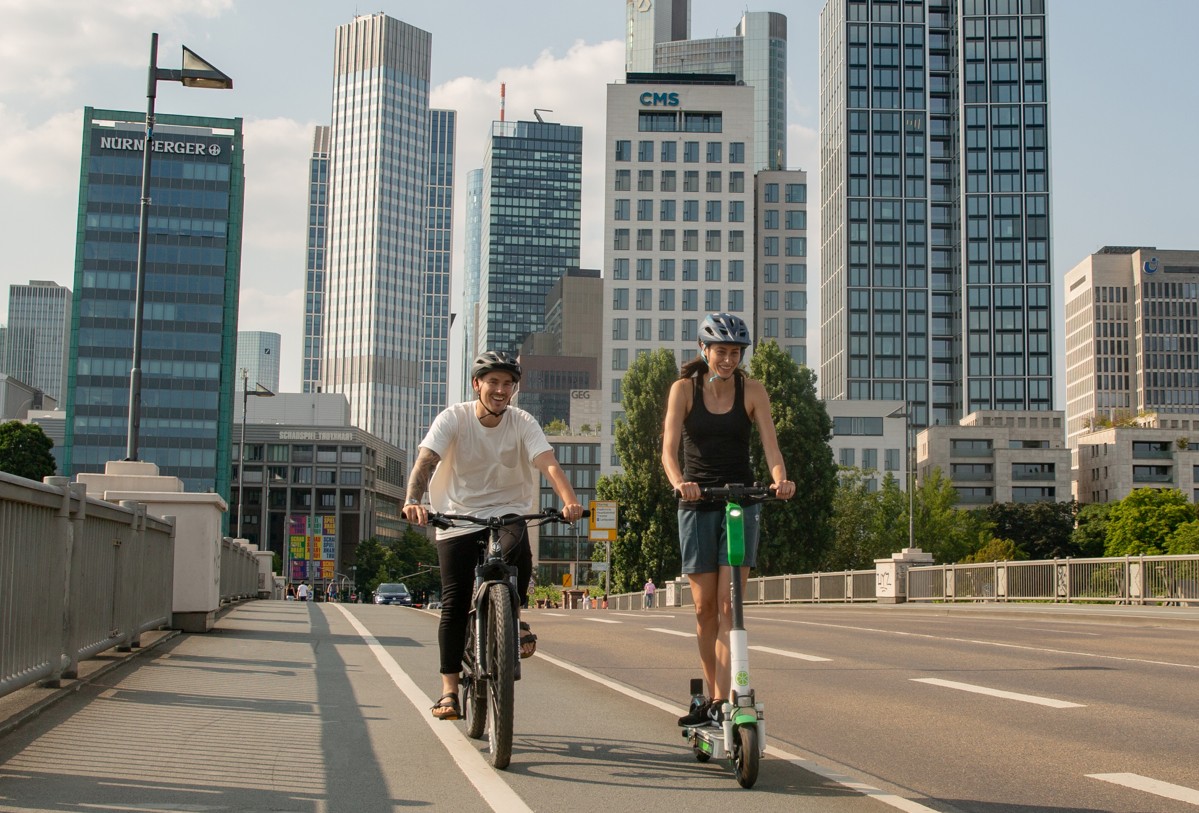Bike sales in Germany have been hampered by a lack of buying indulgence and poor weather. With the good weather coming in, recent numbers have however been picking up according to the German Bicycle Industry Association (the ZIV Zweirad-Industrie-Verband).
With the international Eurobike trade show imminent, hosted in Frankfurt, the ZIV also mentioned growth in foreign trade. In Q1 of 2023, 260,000 bicycles were exported, 14% up on the same period in 2022. E-bike exports have excelled and caught attention with a figure of 56% more than in Q1 in 2022, with 190,000 units leaving the country.
This totals a growth of 28% compared with Q1 of 2022 where customers outside Germany “represent a reliable and growing sales market for German bicycle and parts production”.
Imports into Germany in Q1 came in at 680,000 bicycles, and 350,000 e-bikes, a respective increase of 2.3% and 12.7% compared to the same period in 2022. Imports in the same period grew by 5.6% year-on-year.
Production and sales
Until May, e-bike production was 5% higher than in 2022 with 1,050,000 units produced. However, the state of the global economy felt in Germany, and the poor weather, have together slightly stalled sales according to the ZIV with standard bicycles down 20% and e-bikes down 12% until mid-May.
ZIV CEO Burkhard Stork said, “In view of the ongoing war in Europe, with inflation, a general reluctance to buy, and very bad weather, we expected the market to be gloomy in the first few months of 2023. It is, therefore, all the more pleasing that the anticipated decline in bicycle sales, and especially e-bikes, was less severe throughout Germany from January to May compared to the strong results in the same period last year, and that exports were able to increase considerably in the first quarter.”
ZIV predicts a diverse second half of 2023
ZIV has declared that predicting the end of the year is much more difficult this year, with rarely seen factors having more influence.
“We confer closely with the companies and are currently seeing very heterogeneous situations, sales figures, and expectations,” says Burkhard Stork. “There is a general consensus that quality and innovation ‘Made in Germany’ will remain a stable strong driver, especially in the e-bike market, and that the bicycle and e-bike market will develop very well in the medium and long term.”
At the current rate and with current predictions, 2023 will remain challenging for the bicycle industry, says the ZIV - they forecast sales of around 2 million eBikes for 2023, about 10% less than in the peak year 2022 with 2.2 million units.
Skilled worker shortages and infrastructure promises
E-bike production in Germany has increased by a staggering 70% since 2019, and sales figures have almost doubled from 2019’s 4 billion euros to 7.36 billion euros in 2022. It is expected to cause problems in regard to hiring staff.
Burkhard Stork said, “Our member companies already made it clear before the Covid-19 pandemic that the shortage of skilled workers is a major problem. This problem has since become far more acute. Companies in the bicycle industry unanimously report significant difficulties across all qualification levels in recruiting staff. As an association, we organize the joint efforts of the industry. We expect policymakers to support us and to take appropriate countermeasures.”
The 2020 German federal budget began a new era for bike path construction. Federal Transport Minister Wissing secured funding until 2028. The ZIV warns against any future cuts to the budget, while together the promise to overhaul important changes in German road traffic legislation.
“The federal government’s bike path offensive needs to remain reliable. Thousands of municipalities in Germany are working hard to build bike paths and develop their bike path networks. These processes cannot be completed overnight. Hence municipalities need reliability and a clear commitment that the projects being tackled now can also be financed in a few years’ time. Investments in cycling have high benefits and are comparatively cheap – so it would be counterproductive to now cut back on these investments,” said Mr. Stork.











